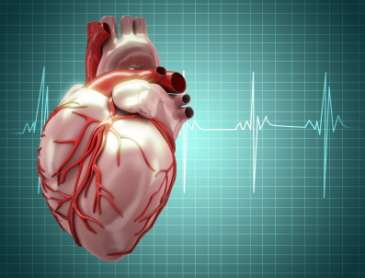New drug could protect the heart from damage following heart attack

The deadliest form of heart attack is frequent with around 250,000 in the USA and about 60,000 in the UK per year. A collaborative team of researchers have been awarded £1 million to accelerate the development of a new drug able to protect the heart from these attacks in the latest round of Biomedical Catalyst funding announced yesterday by the Medical Research Council (MRC) and Innovate UK.
The research team, led by Dr Mike Murphy from the MRC Mitochondrial Biology Unit, MRC Centre Cambridge, together with Professor Raimondo Ascione from the University of Bristol and Dr Thomas Krieg from the University of Cambridge, will build on previous MRC funding to develop an experimental compound into a drug that could protect the heart from damage following the deadliest form of heart attack.
Tests in mice have shown that the compound, called MitoSNO, protects heart tissue from reperfusion injury, which occurs when the blood supply to an organ is interrupted, for example by a blood clot. If the blood supply is restored the tissue can recover, but the sudden return of oxygen-rich blood leads to extensive tissue damage that contribute significantly to the acute mortality and worsens the long-term prognosis for the patient.
All of the 100,000 people a year in the UK who suffer a heart attack will experience a degree of reperfusion injury, which is caused by the production of harmful molecules, called free radicals, by the heart cells. MitoSNO blocks the production of these free radicals, therefore protecting the tissue from damage.
Early tests led by Murphy have shown that the compound is effective in mice. The researchers will now fine-tune production of a drug that will be tested in pigs before moving onto early human trials. The testing will be carried out at the University of Bristol's new Translational Biomedical Research Centre co-funded by the University, MRC and BHF, which will open next spring.
Raimondo Ascione, Professor of Cardiac Surgery and Translational Research in the School of Clinical Sciences Bristol, said: ""We are very pleased to be part of this major example of collaborative translational research program with Cambridge that has great potential to impact on patient benefit worldwide.
"This is a perfect start for the Bristol Translational Biomedical Research Centre, a unique facility of international relevance with a package of specifications aligned to clinical standards.
"The TBRC aims to fast track the translation of new biomedical discoveries into benefit for patients across the NHS and for companion animals, while unlocking the potential of UK scientists to engage in academic and educational partnerships with biomedical Industry."
Provided by University of Bristol